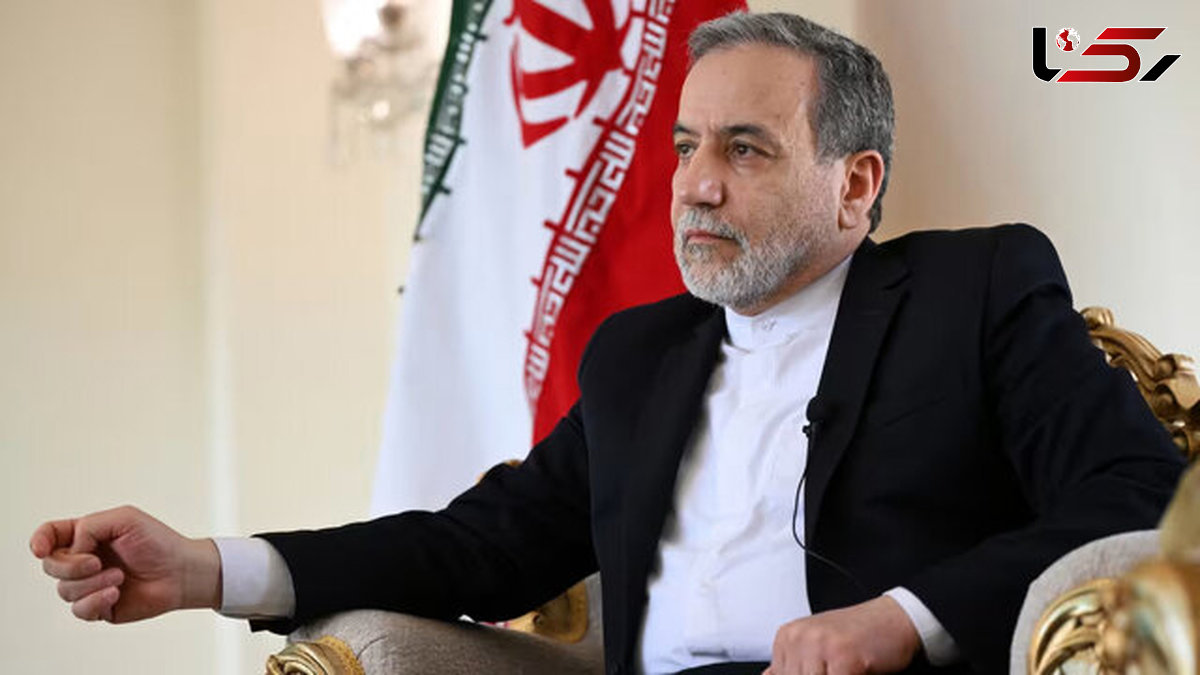Araghchi: The Zionist Regime Seeks the Partition of Syria and the Establishment of Greater Israel
Rokna Political Desk: Iran’s Foreign Minister emphasized that the occupying Zionist regime is working toward the partition of Syria and the realization of a so-called “Greater Israel.”

According to Rokna, Seyed Abbas Araghchi, Iran’s Foreign Minister, stated in an interview that the outcome of his lengthy and transparent meetings with Tunisian President Kais Saied and Foreign Minister Mohamed Ali Nafti was an agreement to convene a session of the Joint Economic Committee between the two countries and to strengthen cooperation in scientific, cultural, tourism, commercial, and political fields.
In an interview with the Arabi 21 website, Araghchi referred to the strong relations between Tunisia and Iran, recalling the Tunisian President’s visit to Tehran last year to extend condolences on the martyrdom of former Iranian President Seyed Ebrahim Raisi. He called for the expansion of relations between the two countries and their peoples in all areas.
Araghchi stressed that his talks in Tunis and Cairo also addressed the future of Tehran’s relations with the International Atomic Energy Agency (IAEA) and coordination among Islamic countries to confront the policy of the “law of the jungle” that the occupying Zionist regime intends to impose on Palestine and the entire region — from Lebanon to Syria, Iraq, Yemen, Iran, Qatar, and Tunisia.
Strengthening Partnership Among Islamic Countries
The senior Iranian diplomat said that Tehran invites Islamic countries to elevate partnership and cooperation in all fields to serve their peoples and to succeed in resisting the law of the jungle, which is being pursued by Tel Aviv with the support of its allies in Washington and several Western states.
Araghchi urged Islamic and West Asian countries to act immediately to halt war, mass killings, and to counter the occupying regime’s schemes in Palestine and across the region.
He added that many Arab, Islamic, and international meetings had been held on Palestine, but none had yielded any results. He stressed that the Palestinian people do not merely need words, but require food, medicine, and the fulfillment of all their needs, as well as redress for the injustices to which they are subjected.
At the conclusion of his talks in Tunis, Araghchi announced that Tehran and Tunis strongly condemned the aggression of the Zionist regime against Qatar.
Crimes of the Zionist Regime in the Region
The Iranian Foreign Minister warned of the dangers posed by Israeli Prime Minister Benjamin Netanyahu’s references to further aggression against more countries under the pretext of targeting leaders of the Palestinian national resistance.
Araghchi said that Israel’s aggression against Qatar and its attacks on the offices of Palestinian resistance leaders were reminiscent of similar aggressions and terrorist crimes that the occupying regime has committed against Iranian scientists and politicians as well as leaders of the Palestinian and Lebanese resistance over the past two years in Iran, Lebanon, the occupied Palestine, Syria, and other regions. He added that this demonstrates the regime’s complete disregard for red lines.
He emphasized that this escalation by Israel coincides with the increasing daily killings and war crimes in Gaza, the West Bank, Jerusalem, and Lebanon.
Araghchi further warned of the dangers of the occupying regime’s aggressive actions against Syrian and Lebanese territories and pointed to the beginning of a new colonial project aimed at the partition of Syria and the occupation of more Syrian lands, particularly in the southern regions and the occupied Golan Heights. He called on Arab, Islamic, and Asian countries to take collective action to thwart the plan for Syria’s partition and the expansion of the regime’s spheres of influence in pursuit of the “myth of Greater Israel.”
New Measures Between Iran and the IAEA
The Iranian Foreign Minister underlined that the agreement recently signed in Cairo with the Director General of the IAEA signifies the initiation of new measures between Iran and the agency, including an arrangement concerning a new mechanism to prove the peaceful nature of Iran’s nuclear program.
According to this report, Araghchi cautioned the European countries led by France, the United Kingdom, and Germany against contemplating escalation with Iran, whether by referring Iran’s peaceful nuclear case to the Security Council, imposing new sanctions, or pursuing a new act of aggression.
The Foreign Minister highlighted that the book he published under the title “The Power of Negotiation” represents the outcome of his diplomatic and communication experiences over four decades. Through this book, he aimed to present his experiences to future generations of government officials, diplomats, intellectuals, and members of the media.
He added that he intends to append a new chapter to his book, likely entitled “Diplomacy Under Fire,” focusing on the role of diplomacy and political negotiations in preventing wars, striving to halt them, and in containing tensions and conflicts.
Send Comments